What lit up the universe? Black holes may have punctured darkened galaxies, allowing light to escape0
- From Around the Web, Space
- September 4, 2017
Soon after the Big Bang, the universe went completely dark.
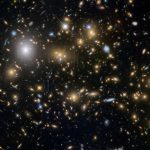
Soon after the Big Bang, the universe went completely dark.
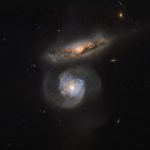
The NASA/ESA Hubble Space Telescope has produced a remarkable new image of a pair of interacting galaxies known as NGC 5765.
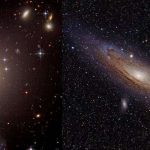
Spiral galaxies are found to be strongly rotating, with an angular momentum higher by a factor of about 5 than ellipticals. In a new study, the researchers have traced back the dichotomy in the angular momentum of spiral and elliptical galaxies to their different formation history. In particular, the low angular momentum of ellipticals is mainly originated by nature in the central regions during the early galaxy formation process.
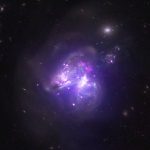
What would happen if you took two galaxies and mixed them together over millions of years? A new image including data from NASA’s Chandra X-ray Observatory reveals the cosmic culinary outcome.
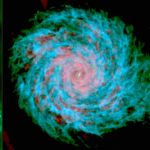
Thousands of processors, terabytes of data, and months of computing time have helped a group of researchers in Germany create some of the largest and highest resolution simulations ever made of galaxies like our Milky Way.
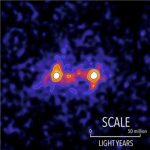
Researchers at the University of Waterloo have been able to capture the first composite image of a dark matter bridge that connects galaxies together. The scientists publish their work in a new paper in Monthly Notices of the Royal Astronomical Society.
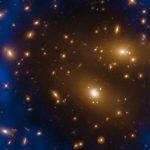
The discovery of ZF-COSMOS-20115 is challenging our long-established assumptions about how galaxies form. The “red and dead” galaxy demonstrates just how little we still understand of how the universe began.
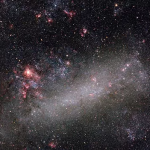
Research conducted by scientists at Rochester Institute of Technology rules out a challenge to the accepted standard model of the universe and theory of how galaxies form by shedding new light on a problematic structure.
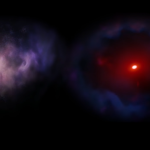
An international team of astronomers has, for the first time, spotted a massive, inactive galaxy from a time when the Universe was only 1.65 billion years old.
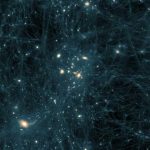
The universe is suspected to be loosing its mass ever since the big bang.